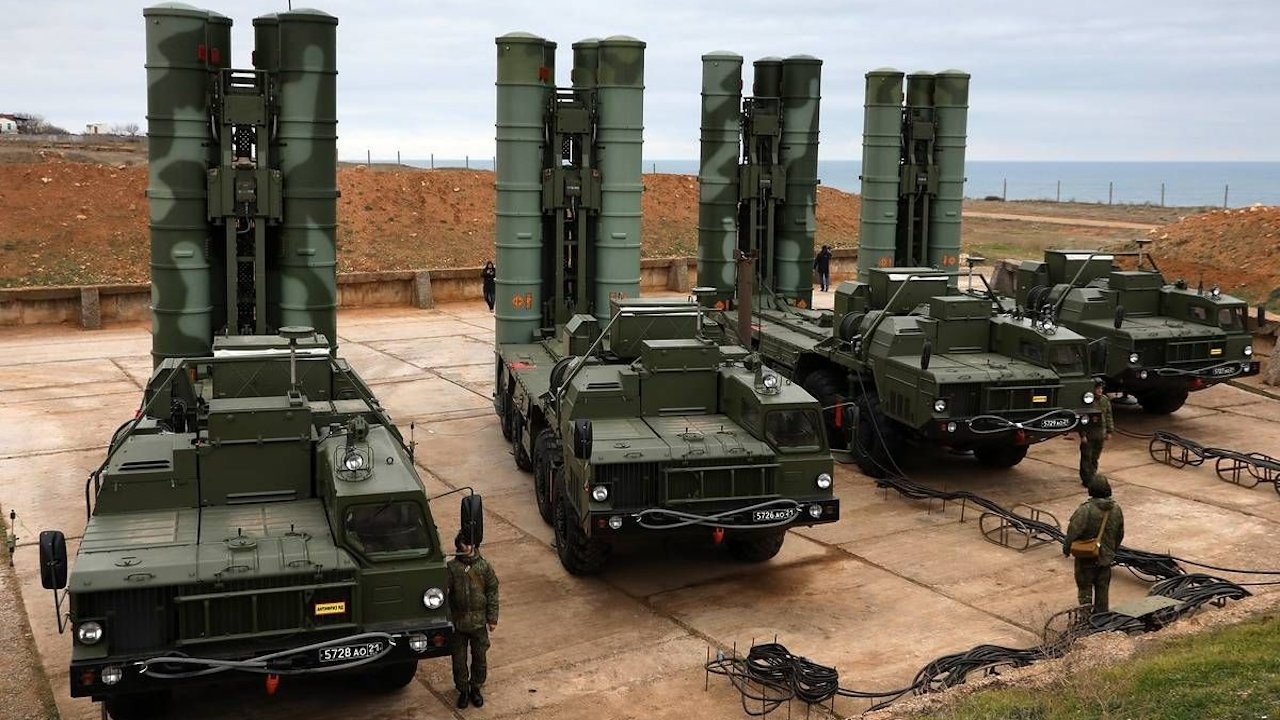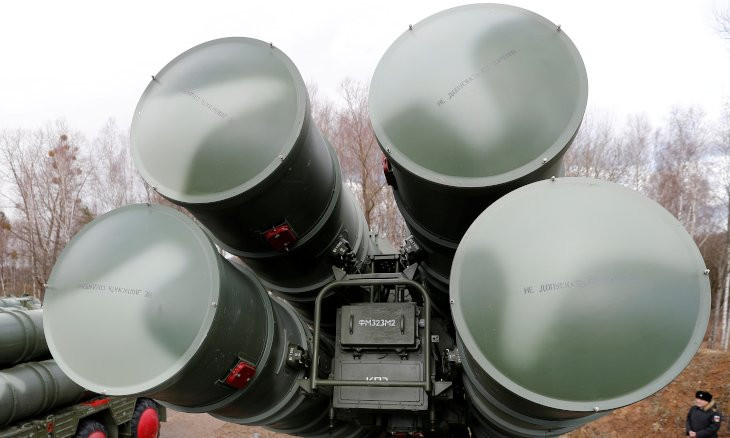New US defense bill mandates S-400 sanctions on Turkey
The final version of the U.S. annual defense policy bill mandates the president to impose five or more sanctions on Turkey that are listed under the 2017 Countering America’s Adversaries Through Sanctions Act (CAATSA) for the country's acquisition of S-400s from Russia. The sanctions described in that Section 235 of CAATSA include, among others, a ban on US banking and property transactions, the denial of US visas and forcing US lenders to deny loans to any sanctioned companies.
Duvar English
The final version of the U.S. annual defense policy bill unveiled on Dec. 2 mandates the president to sanction Turkey for its acquisition of the S-400 air missile defense system from Russia.
President Donald Trump had held back on implementing the sanctions on Turkey for the purchase under the 2017 Countering America’s Adversaries Through Sanctions Act (CAATSA), but the new defense bill orders that five or more sanctions under the CAATSA will imposed within 30 days after its enactment.
The duty of signing the bill will fall on the Trump administration, but otherwise it will be signed by President-elect Joe Biden, who is due to be inaugurated Jan. 20, 2021.
In order for the sanctions to be lifted once imposed, Turkey must certify that it no longer has an S-400 system.
The sanctions will be selected from a menu of 12 possible sanctions in CAATSA Section 235, according to the U.S. defense bill. These sanctions include but not limited to prohibitions concerning property transactions, export license restrictions, export-import bank assistance restrictions, debt and equity restrictions, visa ramifications for corporate officers, and US government procurement prohibitions.
Sanctions could harm a Turkish economy already struggling with a coronavirus-induced slowdown, double-digit inflation and badly depleted foreign reserves.
The U.S. defense bill is the result of months of negotiations between House and Senate Republicans and Democrats. Committee staff said it would be difficult to override a Trump veto with Congress in session only until year-end.
Turkish President Recep Tayyip Erdoğan said last month that Turkey will not abandon the S-400s despite potential U.S. sanctions. “We stepped in for the F-35, you threatened us,” Erdogan told a televised ruling party congress in the eastern province of Malatya. “You said, ‘Send the S-400s back to Russia.’ We are not a tribal state. We are Turkey.”
Washington says the S-400s pose a threat to the capabilities of its F-35 stealth fighter jets and has removed Turkey from the jet programme where it was a manufacturer and buyer.
Ankara says the S-400s will not be integrated into NATO and has called for a joint working group to discuss U.S. concerns.
A senior official in Erdoğan's ruling Justice and Development Party (AKP) repeated on Nov. 26 that Turkey would not bow to pressure to return the Russian systems or leave them unused.
"Sorry, but we didn't procure these to hide them. We got them to meet Turkey's security needs," AKP deputy leader Numan Kurtulmuş said in an interview with Reuters.

 Turkish government doesn't expect US sanctions over Russian S-400s under Biden administrationDiplomacy
Turkish government doesn't expect US sanctions over Russian S-400s under Biden administrationDiplomacy Sanctions are very much on the table, US official says on Turkey's S-400 testDiplomacy
Sanctions are very much on the table, US official says on Turkey's S-400 testDiplomacy